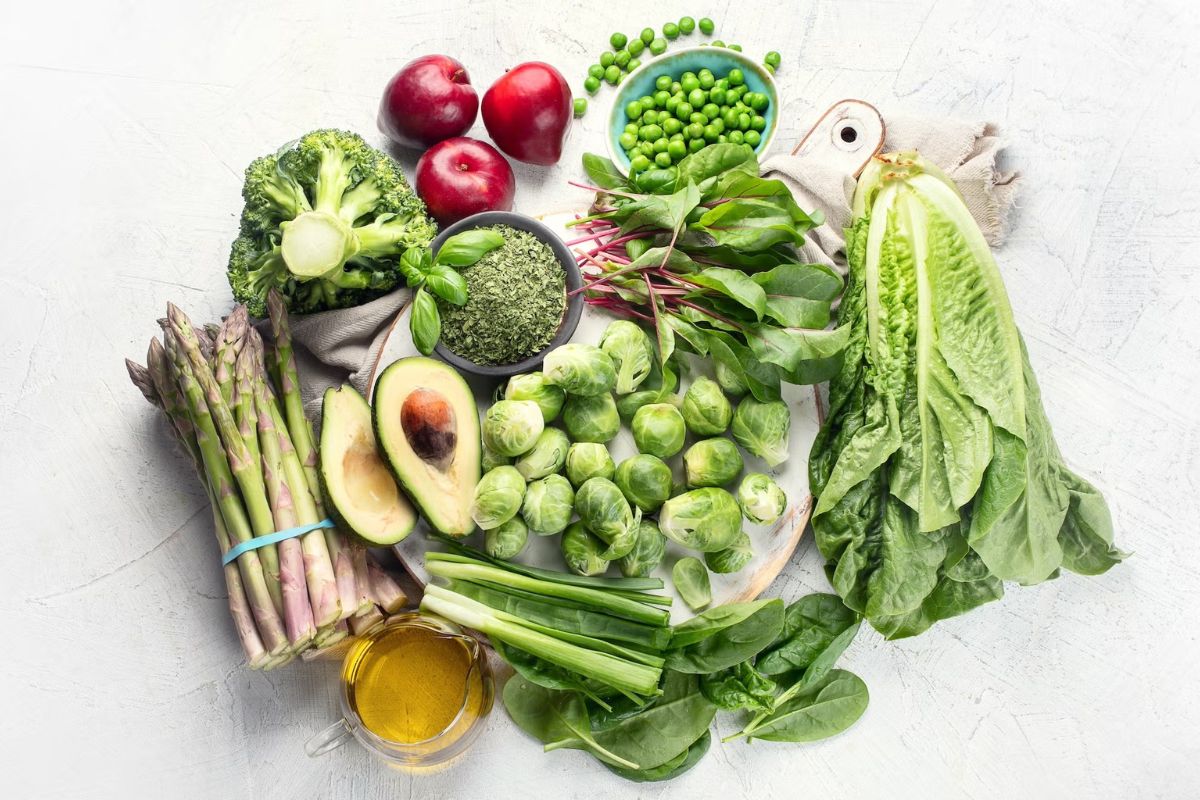
Vitamin K is a vital nutrient that plays a crucial role in our body's ability to clot blood and maintain bone health. But did you know that it comes in two main forms, K1 and K2? K1 is found in leafy greens like spinach and kale, while K2 is present in fermented foods and animal products. This nutrient is essential for preventing excessive bleeding and ensuring that our bones stay strong. Deficiency in Vitamin K can lead to serious health issues, including osteoporosis and heart disease. Want to learn more? Here are 25 fascinating facts about Vitamin K that will help you understand its importance better.
What is Vitamin K?
Vitamin K is a vital nutrient that plays a crucial role in various bodily functions. It is essential for blood clotting, bone health, and other important processes. Let's dive into some fascinating facts about this indispensable vitamin.
-
Vitamin K is fat-soluble. This means it dissolves in fats and oils, allowing it to be stored in the body's fatty tissues and liver.
-
There are two main types of Vitamin K. Vitamin K1 (phylloquinone) is found in plant foods, while Vitamin K2 (menaquinone) is found in animal products and fermented foods.
-
Leafy greens are rich in Vitamin K1. Foods like spinach, kale, and broccoli are excellent sources of Vitamin K1.
-
Fermented foods provide Vitamin K2. Natto, a traditional Japanese dish made from fermented soybeans, is one of the richest sources of Vitamin K2.
The Role of Vitamin K in Blood Clotting
Vitamin K is perhaps best known for its role in blood clotting. Without it, even minor injuries could lead to excessive bleeding.
-
Vitamin K activates clotting proteins. It helps activate proteins that are necessary for blood to clot properly.
-
Newborns receive Vitamin K injections. To prevent bleeding disorders, newborns often receive a Vitamin K injection shortly after birth.
-
Warfarin is a Vitamin K antagonist. This common blood thinner works by inhibiting the action of Vitamin K, reducing the blood's ability to clot.
Vitamin K and Bone Health
Beyond blood clotting, Vitamin K is also essential for maintaining strong and healthy bones.
-
Vitamin K helps bind calcium to bones. It activates osteocalcin, a protein that binds calcium to the bone matrix.
-
Deficiency can lead to osteoporosis. Low levels of Vitamin K have been linked to an increased risk of osteoporosis and fractures.
-
Vitamin K2 is particularly beneficial for bones. Studies suggest that Vitamin K2 is more effective than K1 in supporting bone health.
Sources of Vitamin K
Getting enough Vitamin K from your diet is crucial for maintaining overall health. Here are some of the best sources.
-
Green leafy vegetables are top sources. Spinach, kale, and Swiss chard are among the best sources of Vitamin K1.
-
Fermented foods are rich in Vitamin K2. Foods like sauerkraut, cheese, and natto are excellent sources of Vitamin K2.
-
Animal products contain Vitamin K2. Liver, eggs, and dairy products also provide Vitamin K2.
-
Supplements are available. For those who struggle to get enough Vitamin K from their diet, supplements can be an effective option.
Vitamin K Deficiency
While rare, Vitamin K deficiency can have serious consequences. Understanding the signs and risks is important.
-
Bleeding and bruising are common signs. Easy bruising, nosebleeds, and bleeding gums can indicate a deficiency.
-
Newborns are at higher risk. Due to low stores of Vitamin K at birth, newborns are more susceptible to deficiency.
-
Certain medications can cause deficiency. Antibiotics and anticoagulants can interfere with Vitamin K absorption and function.
-
Liver disease can affect Vitamin K levels. Since Vitamin K is stored in the liver, liver disease can lead to deficiency.
Interesting Facts About Vitamin K
Here are some lesser-known facts that highlight the importance and versatility of Vitamin K.
-
Vitamin K was discovered in 1929. Danish scientist Henrik Dam discovered it while researching cholesterol.
-
The "K" stands for "Koagulation." This is the German word for coagulation, reflecting its role in blood clotting.
-
Vitamin K2 has multiple forms. Menaquinones (MKs) range from MK-4 to MK-13, each with different benefits.
-
Gut bacteria produce Vitamin K2. Beneficial bacteria in the intestines can synthesize small amounts of Vitamin K2.
-
Vitamin K works with Vitamin D. Both vitamins play a role in calcium metabolism and bone health.
-
Dark green vegetables are best eaten with fat. Since Vitamin K is fat-soluble, consuming it with healthy fats improves absorption.
-
Vitamin K may support heart health. Some studies suggest that Vitamin K2 can help prevent arterial calcification, reducing the risk of heart disease.
The Final Word on Vitamin K
Vitamin K is a powerhouse nutrient that plays a vital role in blood clotting, bone health, and heart function. Found in leafy greens, broccoli, and even some meats, this vitamin is essential for maintaining overall health. Without enough Vitamin K, your body might struggle with excessive bleeding or weakened bones. It's fascinating how such a small nutrient can have such a big impact on your well-being.
Remember to include a variety of Vitamin K-rich foods in your diet to reap its benefits. Whether you're munching on a spinach salad or enjoying a serving of Brussels sprouts, you're doing your body a favor. Keep an eye on your intake, especially if you're on medications that affect blood clotting.
Stay informed, eat well, and let Vitamin K work its magic in keeping you healthy and strong.
Was this page helpful?
Our commitment to delivering trustworthy and engaging content is at the heart of what we do. Each fact on our site is contributed by real users like you, bringing a wealth of diverse insights and information. To ensure the highest standards of accuracy and reliability, our dedicated editors meticulously review each submission. This process guarantees that the facts we share are not only fascinating but also credible. Trust in our commitment to quality and authenticity as you explore and learn with us.
